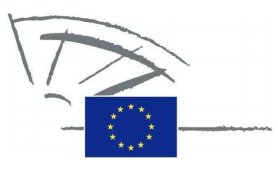Advies over bescherming natuurlijke personen bij de verwerking van persoonsgegevens
 Advies van de Commissie Juridische zaken inzake de bescherming van natuurlijke personen in verband met de verwerking van persoonsgegevens door de bevoegde autoriteiten met het oog op het voorkomen, onderzoeken, opsporen en vervolgen van strafbare feiten of de tenuitvoerlegging van straffen, en het vrije verkeer van gegevens.
Advies van de Commissie Juridische zaken inzake de bescherming van natuurlijke personen in verband met de verwerking van persoonsgegevens door de bevoegde autoriteiten met het oog op het voorkomen, onderzoeken, opsporen en vervolgen van strafbare feiten of de tenuitvoerlegging van straffen, en het vrije verkeer van gegevens.
The EU is rightly seeking to equip itself with a comprehensive, coherent, modern, high-level framework for data protection, since the challenges facing data protection are numerous. They include globalisation, technological development, enhanced online activity, uses related to more and more criminal activities, and security concerns. (...)
The relevant European rules (Article 16 TFEU and the recognition in Article 8 of the Charter of Fundamental Rights of the right to protection of personal data as an autonomous right) must therefore provide individual citizens with legal certainty and confidence in the behaviour of data controllers, and in particular of prosecution and enforcement authorities, since violations of data protection provisions can lead to serious risks for the fundamental rights and freedoms of individuals and the values of the Member States. (...)
data protection in the field of criminal investigation and enforcement must be adapted to other considerations relating to the rule of law and deriving from the state monopoly on the use of force. Data protection legislation in relation to averting risk, establishing and safeguarding public security and investigating crimes and executing criminal penalties must match the tasks to be performed by the state and ensure that it is still able to perform these tasks effectively, in the interests of all its citizens.(...)
In light of these considerations, the rapporteur takes the view that the directive should do no more than set minimum standards. In practice, this renders obsolete the question of 'only cross-border' or 'also domestic' data protection, and a higher level of data protection may in any case be maintained.
However, in order to preserve the balance with data protection as a fundamental right, the directive must at the same time strengthen and give a clear definition of individual rights. The principles of transparency and scrutiny must be enshrined, but they should not run counter to the purpose of averting risks and prosecuting crimes. (...)





























